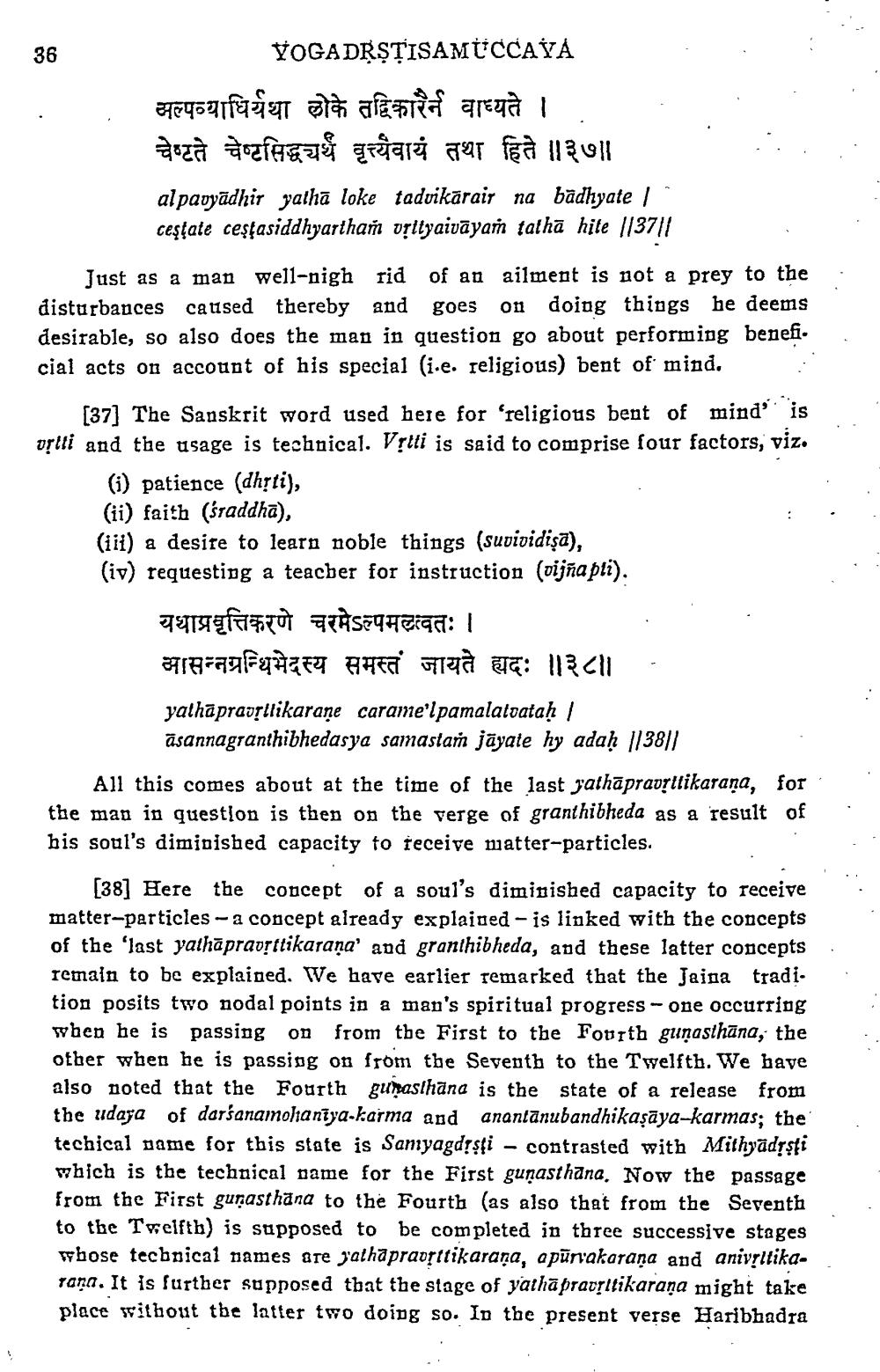________________
.
VOGA DĒSTISAM UCCAVA अल्पव्याधिर्यथा लोके तद्विकारैर्न वाध्यते । चेष्टते चेष्टसिद्धयर्थं वृत्त्यैवायं तथा हिते ॥३७॥ al pavyādhir yatha loke tadvikārair na badhyate /
cestate ceşfasiddhyarthañ urltyaivāyam tathā hite 113711 Just as a man well-nigh rid of an ailment is not a prey to the disturbances caused thereby and goes on doing things he deems desirable, so also does the man in question go about performing benefi. cial acts on account of his special (i.e. religious) bent of mind.
[37] The Sanskrit word used here for ‘religious bent of mind' is ostti and the usage is technical. Vịtti is said to comprise four factors, viz.
(i) patience (dhști), (ii) faith (śraddha), (iii) a desire to learn noble things (suvividişa), (iv) requesting a teacber for instruction (vijña pli).
यथाप्रवृत्तिकरणे चरमेऽल्पमलत्वतः । आसन्नग्रन्थिभेदस्य समस्तं जायते ह्यदः ॥३८॥ . yathāpravstlikarane carame'lpamalatvataḥ /
āsannagranthibhedasya samastañ jāyaie hy adah 1138|| All this comes about at the time of the last gathāpravrttikarana, for the man in question is then on the verge of granthibheda as a result of his soul's diminished capacity to receive matter-particles.
.
.
[38] Here the concept of a soul's diminished capacity to receive matter-particles - a concept already explained - is linked with the concepts of the 'last yathāpravrttikarana' and granthibheda, and these latter concepts remain to be explained. We have earlier remarked that the Jaina tradi. tion posits two nodal points in a man's spiritual progress - one occurring when he is passing on from the First to the Fourth gunasthāna, the other when he is passing on from the Seventh to the Twelfth. We have also noted that the Fourth gumasthana is the state of a release from the udaya of darsanamohaniya-karma and anantānubandhikaşāya-karmas; the techical name for this state is Samiyagdisti - contrasted with Mithyadrsti which is the technical name for the First gunasthana. Now the passage from the First gunasthana to the Fourth (as also that from the Seventh to the Twelfth) is supposed to be completed in three successive stages whose tecbnical names are gathapravsttikarana, apūnakarana and aniv;ltikarana. It is further supposed that the stage of pathā pravşltikaraña might take place svithout the latter two doing so. In the present verse Haribhadra




